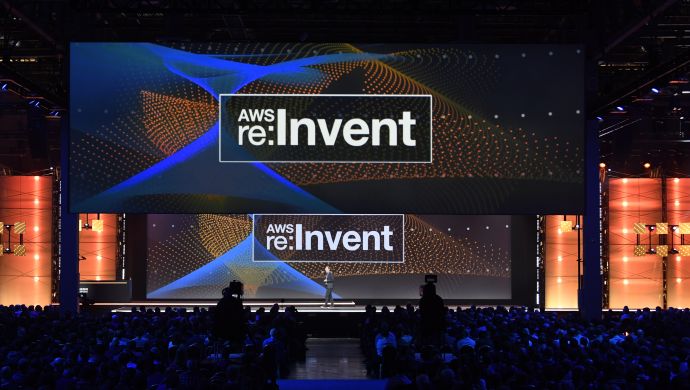Citing plans to open new offices in three different countries, the company also speak up on possible competition with Alibaba Cloud

AWS CEO Andy Jassy delivering his keynote speech at AWS re:Invent 2016
On the final day of Amazon Web Services (AWS) re:Invent, AWS Head of ASEAN Nick Walton revealed the company’s plan to expand within the Southeast Asian (SEA) region.
“One of the key things that has been a big part of our strategy this year is to expand our footprint, [by having] more offices across Southeast Asia. We’ll open offices this year in Thailand, Philippines, and Malaysia, and hire local staffs who understand the local market and have relationships with the partner and partner’s ecosystem,” he stated.
The company’s presence in SEA began in 2010 with the opening of its Singapore office. Since then, Walton claimed that AWS has seen “strong uptakes” in the region, particularly among clients in startups and e-commerce sectors.
AWS will also continue its startup-focused programmes such as Activate, which provides training and free credits for startups to use the AWS platform, in order to help them cut costs.
Also Read: Startups can scale from Day 1 with cloud: AWS’ Andy Jassy
Infrastructural challenges faced by several SEA countries are a concern for network-based services such as cloud computing. To deal with this, AWS builds partnerships with companies such as NTT Corporation in Indonesia.
“Along with infrastructure, the skills and experiences, are something that we are investing heavily in,” Walton said.
When asked about possible competition with Alibaba Cloud in its Asian operation, Walton said that the company was “surprised” that it took a while for competition to recognise the opportunity provided by cloud technology.
“I think it’s interesting because one of the strengths of AWS is the experience that we’ve built over the last ten plus years … The experience we have in operating in scale is a key differentiator for AWS,” he said.
Also Read: Cloud allows you to fail fast and fail cheap: AWS ASEAN Head
Regional footprint
In the SEA region, AWS has worked together with several initiatives such as Toyota Tsusho’s smart city initiative in Thailand.
By embedding GPS into public transportation such as taxis and buses, the project aims to help government track traffic jam hotspots in Bangkok by storing the data in AWS cloud platform and analysing it. The project helps drivers to find less-congested route, and in the long run, is expected to help solve the city’s congestion problem.
“In Bangkok, even when there is the traffic jam problem, there is no culture of using data [to understand it]. So we are trying to educate them,” Goragot Wongpaisarnsin, Assistant General Manager of Toyota Tsusho, told e27 in a separate session during the event.
Toyota Tsusho is currently in talks to expand the project to other SEA cities with heavy congestion issues, such as Jakarta. It is also developing methods to record and analyse the flow of human movement within a building.
Also Read: NASA is developing an Alexa-enabled robot for its Mars mission 2020
Having worked with well-known startups such Netflix and Slack, in the SEA region AWS will continue working with startups such as iflix, which currently has presence in seven countries.
iflix CTO Ash Crick explained the technological challenges faced by the streaming platform when expanding to markets with various infrastructural issues.
“There are two parts to our system: the origin, which is the heavy-lifting of taking the contents in, calculate how it’ll look like for different people with different devices, security management, things like that. And then there is the actual video delivery which we try to get it as close to the users as possible,” he explained.
Of the new services that AWS just launched during the event, Crick is looking forward to experiment with artificial intelligence to be used on the video streaming platform.
“Image recognition, voice-to-text transformation … there is an opportunity to use that,” he said.
—-
Image Credit: AWS
The post Smart cities and startups: Inside AWS’ expansion plan within Southeast Asia appeared first on e27.